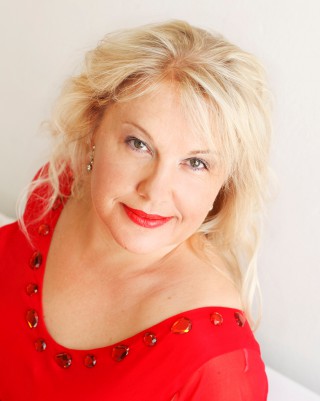An Ensemble Modern commission, here receiving its United Kingdom premiere,
Milliken’s Bright Ring spoke, to quote the composer, of ‘fields of
energy that I perceived whilst performing with the Ensemble Modern,’ an
energy ‘of collaboration and interaction, whether pulsing or still (or
both)’. I initially read such lines with a degree of scepticism, but having
heard the piece, they made a good deal of sense, the idea furthered by the
title reference to the line, ‘Bright is the ring of words’, from a Robert
Louis Stevenson poem, and the rings of Saturn. Two violins vied with each
other at the opening, joined by viola and intermittently others, in music
that seemed to depict and/or express both pent-up rhythmic violence and
something (ring-like?) more numinous, often led by flute or tuned
percussion. There was, I think, a sense of something akin to an
extra-terrestrial landscape and narrative, not in a filmic way, but perhaps
more akin to the tone poems of the past. The close, in which a flickering
cello line initiated a final explosion, thereafter subsiding, seemed once
again to encapsulate that tension between ensemble and solo instrument,
planet and ring, pulse and its withdrawal.
Christian Mason’s 2015 Layers of Love, written for and recorded by
Klangforum Wien, announced itself with slithering, mysterious microtones.
Movement in various ways, rhythmic and harmonic, was initially slow and
hard won, yet undeniable. There was a strangeness that seemed more of this
world than Milliken’s other, but I am not sure I could explain what,
practically, I mean by that. Certainly there was drama, albeit less
pictorial than in the previous work. More than once, Bernd Alois Zimmermann
came to my mind: again, I am not entirely sure why, but think it may have
had something to do with the ultimately achieved rhythms and their
relationship to sound, not least from the double bass.
Dallapiccola’s Piccola musica notturna spoke with the distilled
mastery of a true classic, as perfectly formed in work and performance as a
piece by Mozart, Schoenberg, or Debussy. Indeed, rather to my surprise, I
found something naggingly Debussyan, if only in correspondence, to the
turns of several phrases, however different the serial method one could
hear and feel as clearly as if chez Schoenberg or his pupils. It
was not difficult to understand what might have attracted Benjamin to so
exquisitely logical, warmly expressive a miniature. If ever there were a
composer whose music we should hear far more often…
I had last heard Into the Little Hill only
in September, in Berlin
, also conducted by the composer, albeit with the Mahler Chamber Orchestra.
Its small performing forces (two vocal soloists and ensemble), formal
perfection, and dramatic power render it a highly attractive work for
regular performance, whether on stage or in concert; yet possession of such
qualities does not always translate into such (relative) popularity. In
this case, as with Benjamin’s two subsequent, larger-scale operas,
Written on Skin
and
Lessons of Love and Violence
, it is heartening to report that widespread enthusiasm continues.
Stravinskian incision, violence, and economy, marked the opening - not just
for itself, but as the opening to this complete (compleat) drama of modern
political life, more bitingly relevant, so it seems, with every hearing.
Whether it were the cool hieratic (Symphonies of Wind Instruments
?) quality to the Minister’s addressing the crowd; the latter’s controlled
yet increasing hysteria; the deathly tension of electric woodwind lines as
the Minister meets the Stranger; or the latter’s wheedling, seductive way
(heightened no end by Anu Komsi in particular, likewise her bloodcurdling
cries ‘Swear by your sleeping child’): one could have cut the air with a
knife - and that only in the first scenes to Part One.
As so often, operatic mastery shows itself particularly in the interludes
between scenes. What a composer says and does not, unconstrained by words
and indeed voices, will often - not always - penetrate to the heart of his
or her musical dramaturgy. Such was certainly the case here, both in work
and performance; so too in orchestral writing and playing elsewhere, as for
instance in the terror of the intricately inviting processional that
underlies the scene between Mother and Child. ‘The rats will stream like
hot metal to the rim of the world.’ Indeed, they would - and did. A similar
observation might be made of the division into two parts, the latter’s
opening sounding and feeling strongly as if a new act, as if marking the
return from an interval for the opera’s final, fatal events to unfold. ‘And
music?’ ‘All music - smiles the minister - is incidental.’ Not at all. For
the true rodent ghosts were now in the machine; so too, led by
far-from-incidental music, was the child whose grasping, mendacious
politician of a father had stolen its future. The will of the people had
been enacted: The Little Hill meant The Little Hill.
Mark Berry
Cathy Milliken: Bright Ring (UK premiere); Christian Mason: Layers of Love; Dallapiccola: Piccola musica notturna;
Benjamin: Into the Little Hill. Anu Komsi (soprano);
Helena Rasker (contralto); Ensemble Modern/George Benjamin (conductor).
Wigmore Hall, London, Tuesday 5 March 2019.
